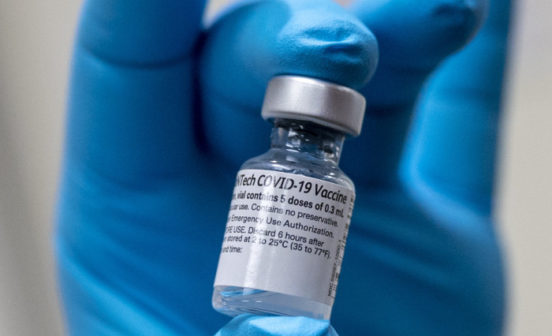Improved OutcomesOperational ExcellencePolicy InfluenceService Delivery Changes Supporting the NHS and government response to the Covid-19 pandemic

NIHR Imperial BRC supported research was integral to the national response to the Covid-19 pandemic, with several BRC-supported studies leading to new treatments, clinical guidelines and improvements to the world’s understanding of the disease and its transmission that assisted policymaker decisions.
The DHSC-commissioned REACT trial provided reliable data on the extent of Covid-19 infection using self-sampling and was made possible by rapid mobilisations of a BRC-supported research team, including a public advisory group. From May 2020 – September 2021, over two million people were tested, with the study identifying the onset of the second wave in October 2020 and the growth of the Delta variant in 2021. REACT directly informed government response including timing of the second national lockdown, reinforcing the need for the ‘rule of 6’ and recommendations to protect those living in large households, as well as informing vaccine policies.
Findings from the REMAP-CAP trial, led by an NIHR Imperial BRC-supported team, found treatments that helped the most severely unwell patients, including easily accessible existing medications that could be deployed at speed when other options were limited, such as steroids (dexamethasone) and anti-inflammatory drugs (simvastatin). BRC teams also supported other national Covid trials, such as RECOVERY.
Real-time Assessment of Community Transmission (REACT) Study
Coronavirus antibody prevalence falling in England, REACT study shows
Coronavirus prevalence has fallen nationally with R below 1, REACT study shows





